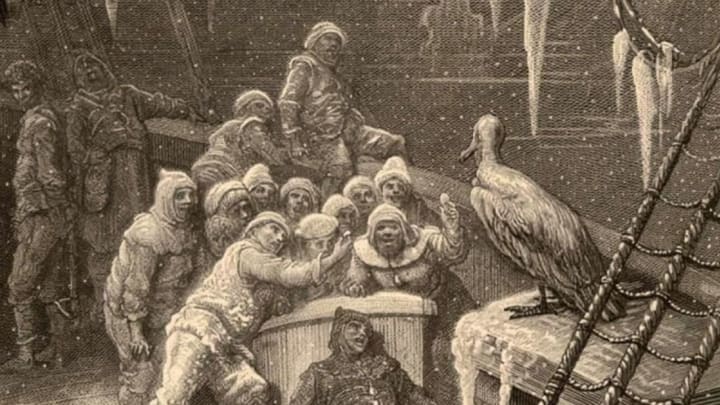The English language is filled with animal-inspired idioms, from horseplay to monkey business. One of the more bizarre examples of this is the phrase to have an albatross around your neck. If you’ve ever used this expression to describe an unwanted burden, you were quoting poetry—possibly without realizing it.
This is one of the rare idioms whose origins can be traced back to the source. If you studied the Samuel Taylor Coleridge poem “The Rime of the Ancient Mariner" in English class, you may already be familiar with the phrase. In the late 18th-century literary work, a sailor recalls shooting a harmless albatross. The seabirds are considered lucky in maritime folklore, so the act triggers misfortune for the whole crew. As punishment, the sailor is forced to wear the animal's carcass around his neck. You can read the famous passage below.
“Ah! well a-day! What evil looks
Had I from old and young!
Instead of the cross, the Albatross
About my neck was hung.”
Today, the phrase have an albatross around your neck is used to characterize an unpleasant duty or circumstance that’s impossible to avoid. It can refer to something moderately annoying, like an old piece of furniture you can’t get rid of, or something as consequential as bad luck at sea.
Next time you call something “an albatross around your neck,” you can feel a little smarter knowing you’re quoting classic literature. Here are other examples of poetry you may use in everyday conversation without knowing it.
Read More Articles About Phrase Origins:
A version of this story ran in 2021; it has been updated for 2024.
